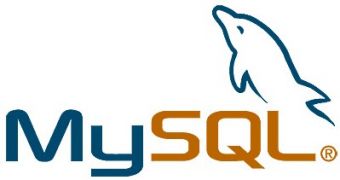We're used to seeing this kind of conversations between Eminem and Mariah Carey, but it seems that the Oracle-Sun deal has stirred up some opposite opinions between Oracle's management and MySQL's founder, Finnish developer Ulf Michael “Monty” Widenius. After launching a stern and stingy campaign against the Oracle-Sun merger in late October demanding some commitments from Oracle to the MySQL project, Mr. Widenius is now marking all of Oracle's reassurances as “empty promises.”
For those who do not know what all of this is about, the whole public media war started when appalled MySQL developers were greeted one day with the news that the long discussed Oracle-Sun merger was approved by the US Government without any special conditions being imposed on Oracle to sustain MySQL going forward.
Fearing another drama like the one with InnoDB, the community started to mitigate for assurances from the commercial giant that it will keep MySQL opened to the open-source world as Sun did until now. Their last hopes were officially in the hands of the European Committee's approving process.
After the public onslaught it took for the InnoDB acquisition and how the project was handled afterward, Oracle tried to speed up the approval process of the EC and rallied up some of its biggest clients to send letters to the EC's approval committee requesting that the deal be accepted without any special conditions.
This action soon sparked a violent answer from MySQL's founder and later from its community, which saw hundreds of developers, small companies or non-profit organizations doing the same thing: sending letters to the EC demanding that special clauses be added to the deal regarding MySQL.
Since then, Oracle made public, through a press release, a list of promises regarding MySQL's state and development after the takeover. Many developers, with Mr. Widenius being the most vocal of them, were displeased with the way they were made and especially on how they were formulated.
The primary concern is generated by the fact that all of these promises have came only in a press release, which has absolutely no legal bounding on the official acquisition deal. Mr. Widenius makes a strong case on his recent blog post, analyzing every promise made by Oracle's management and categorizes all of them as being “empty,” solely another bluff in its legal war of killing other open-source alternatives to Oracle's commercial products.
Mr. Widenius concludes that Oracle will surely try to split development of MySQL Enterprise from MySQL Community, while ignoring code development from the community and pumping all of the development funds in the Enterprise version. While it will continue to offer MySQL Community as a free platform, it will ignore outside code development and try to include as much in-house code and module requirements so any fork in the project will not have any chance of success.
The founder also warns the EC that by following its promise regarding future licensing proposals, storage vendors and companies using MySQL may end up at Oracle's mercy after the five-year grace period Oracle is willing to extend its current licenses. Also, Mr. Widenius warns that Oracle is trying to convince the EU that it has MySQL's best interests at heart only through press releases, but not taking the necessary legal binding steps of contractually commuting to some real promises.
Here is Mr. Widenius’ view, “From this I conclude that Oracle CANNOT be trusted as an owner of MySQL and we have to continue our battle against the MySQL part of the merger to ensure that MySQL will continue to be free and available for all, forever, on a reliable basis and with real innovation happening!”
He then goes to encourage his blog readers and MySQL community members to continue sending letters to the EC to help MySQL break free or have a real future assured at Oracle. A model of the letter can be found in Mr. Widenius blog posts at this link.
We believe that while Oracle still has a big chance of getting its Sun deal approved by the EC, the InnoDB debacle will surely be a heavy stone tied around its neck when it comes to giving a passing grade for the MySQL clauses. More and more community members and companies alike are synchronizing and multiplying their pressure and efforts on the EC, asking at least for special additional clauses if Oracle can't be denied the whole project at all.
While very successful in the past, MySQL has all the chances to end up like its peer project InnoDB if the deal is approved in its current terms without any protection for the platform: a semi-opened, semi-successful database storage solution.
On the other hand, even if we all sympathize with MySQL's cause, there is Oracle's side as well. The company has worked hard to get where it is relying only on paying customers and providing thousands of jobs across the world for many talented developers. We will never know if the whole Sun deal was intended in Oracle's board meetings as “going after Sun to get Solaris,” “going after Sun to get Java” or “going after Sun to get MySQL” but the company that makes most money out of supplying database solutions in the world can't possibly be considered the perfect home for its most important competitor, and on top of it all, an open-source solution.
After InnoDB has seen development at a snail’s pace since it joined Oracle, and all its new features were implemented in native Oracle commercial solutions first, MySQL seems to be following the same path to degradation if things continue like this. Some other major “malfunctions” that spurred out of the InnoDB-Oracle acquisition were the fact that community support was unofficially closed down for later versions and upgrade patches to the platform (from highly known users like Google) were only implemented after the Sun-Oracle deal was announced. Development still continued, but InnoDB fell way behind other similar products.
Possible solutions may vary from inserting additional clauses to even a more radical solution of splitting MySQL from its Sun home. We will have to wait a little bit more for that answer, but what matters is who has to gain from this in the end. The situation will be a mystery to us all until the European Committee reveals its decisions; meanwhile, we can conclude that MySQL, the platform, is the one to lose the most. The only way it could win is if the EU granted its freedom, but that is highly unlikely.
While the EU deemed Oracle's promises as “significant,” the deal seems more and more likely to be approved as days go by. And maybe another letter like the one sent at the beginning of December will be sent to the EC by US senators, urging the EU to approve the deal because delaying it causes Oracle to lose $100 million per month. The answer they got wasn't pretty, “[The senators are] interfering in someone else's decisions rather than taking the most important decision that you have control over: improving health care [...] Is this really more important than fixing your own health care system?” said EC Chair Neelie Kroes.
Certainly, after the recent “significant” pledge from Oracle, EC members won't be replying to those next US letters like they did in the last one.

 14 DAY TRIAL //
14 DAY TRIAL // 

